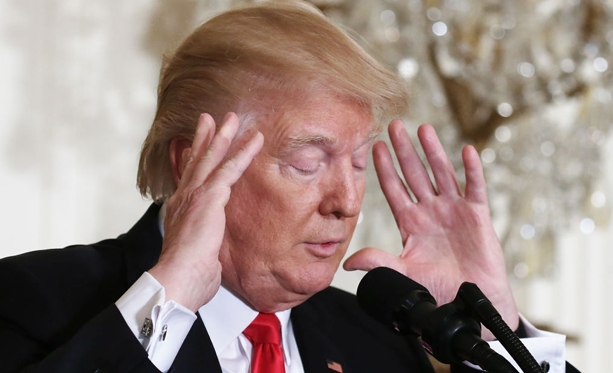
The Washington Post reports that we are now engaged in “a situation in which the personal insecurities of the president — and his refusal to accept what even many in his administration regard as objective reality — have impaired the government’s response to a national security threat.” It’s not a question of whether it’s politically expedient for Donald Trump to strategically downplay Russia’s activities. Instead, the president is reportedly emotionally incapable of digesting the information presented to him by top CIA officials — and that’s preventing the United States from clapping back against the Kremlin.
Ever since he was elected, and ever since Russian interference in that election was revealed, Trump has, almost entirely, refused to acknowledge it was anything less than his strategy and skill that got him to the White House. His denial apparently runs so deep that those who deliver his daily briefings have learned to present any information on Russia as gingerly as possible. “If you talk about Russia, meddling, interference — that takes the [Presidential Daily Brief] off the rails,” said a former senior U.S. intelligence official. If the topic of Russia can’t be avoided in the PDB, they will use rhetorical tricks to manage Trump’s sensitivity to the subject — like mentioning Russia only in print (for which Trump has a shorter attention span), or cushioning it between more appealing pieces of information.
This leads to an awkward distortion of the objective data gathered by the CIA whenever agency director Mike Pompeo downplays his department’s findings — not just to the President, but to the public as well. Indeed, it’s not just that the CIA is hamstrung in turning its intelligence into a meaningful response to Russia’s aggression. It’s that the White House won’t even acknowledge the full impact of Russia’s actions without risking a meltdown by Trump.
(Via: Washington Post)
